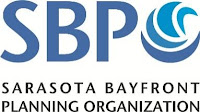Goal is to combine Sarasota County’s zoning and land-use regulations in a much more user-friendly documentFile photo
The Fort Lauderdale consulting firm working with Sarasota County staff to update the county’s zoning and land use regulations into a Unified Development Code (UDC) has produced its first draft, the county has announced.
That document is available on the UDC Project webpage, a news release says. Anyone may provide comments directly on the UDC Project webpage or by submitting them to the Planning and Development Services Department at planner@scgov.net, the release points out. Those comments will be addressed by the consultant as the project moves forward, the release notes.
More . . .
Those concerned with the Quad parcels near the Celery Fields wonder why Sarasota County is in such a rush to sell them (after 20 years of doing nothing). Meanwhile, in Englewood, parcels once purchased by the County for use as a park are now for sale at a deep discount:
Sarasota News Leader - snippets:
County to lose more than $2.3 million on two Englewood parcels it bought years ago for a park — if it can sell both at board-approved prices
The first parcel, located at 50 Southwind Drive, was purchased by the Sarasota County Parks, Recreation and Natural Resources Department for $1,250,000 in 2007, “with the intention of creating a neighborhood waterfront park in conjunction with an adjacent site purchased separately by the Englewood CRA [Community Redevelopment Area],” a staff memo said.
That adjacent property was the land at 800 W. Perry St., for which the Englewood CRA paid $2,203,656, a separate staff memo explained.
...
“I think the lesson to be learned here is we don’t purchase property as a park without consulting with the neighbors on the other side to see if they want a park,” Commissioner Nancy Detert added. “That’s what I’ve found, historically has been the situation with this. It’s really hard to imagine that we’ve had [the land] this long, years, and years and years,” she continued, “and it hasn’t appreciated.”
======
Those concerned with the Quad parcels near the Celery Fields wonder why Sarasota County is in such a rush to sell them (after 20 years of doing nothing). Meanwhile, in Englewood, parcels once purchased by the County for use as a park are now for sale at a deep discount:
Sarasota News Leader - snippets:
County to lose more than $2.3 million on two Englewood parcels it bought years ago for a park — if it can sell both at board-approved prices
The first parcel, located at 50 Southwind Drive, was purchased by the Sarasota County Parks, Recreation and Natural Resources Department for $1,250,000 in 2007, “with the intention of creating a neighborhood waterfront park in conjunction with an adjacent site purchased separately by the Englewood CRA [Community Redevelopment Area],” a staff memo said.
That adjacent property was the land at 800 W. Perry St., for which the Englewood CRA paid $2,203,656, a separate staff memo explained.
...
“I think the lesson to be learned here is we don’t purchase property as a park without consulting with the neighbors on the other side to see if they want a park,” Commissioner Nancy Detert added. “That’s what I’ve found, historically has been the situation with this. It’s really hard to imagine that we’ve had [the land] this long, years, and years and years,” she continued, “and it hasn’t appreciated.”






















